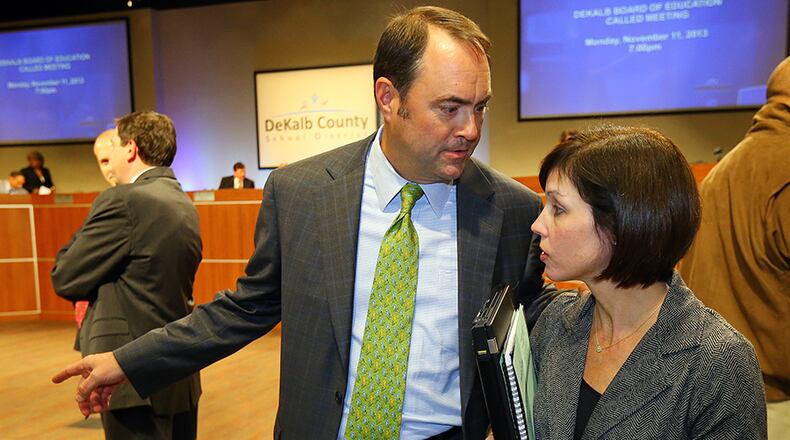Parents and teachers in central DeKalb County were denied their request for control over their classrooms Monday, when the county school board rejected a petition to place a group of public schools under private management.
The 5-4 decision came after school district administrators said the proposal would cost DeKalb money it could ill afford, without bringing innovation. The petition was Georgia’s first to convert a “cluster” of traditional schools to charter status. It was filed in August under a 2010 law that so far has been used only for non-traditional, “startup” charter schools.
Proponents hailed the Druid Hills Charter Cluster as a way to rejuvenate seven public schools near Emory University. Teachers there have complained of packed classrooms, unnecessary tests and curriculum restrictions, and petition backers said they could improve results without such mandates.
Critics contended the cluster concept was a way to privatize public schools and noted that taxpayers would have no influence over decisions by cluster management.
The proposal was to move Druid Hills High School, Druid Hills Middle School and their five feeder elementary schools—Avondale Estates, Briar Vista, Fernbank, Laurel Ridge and McLendon—under a private non-profit organization with its own board of directors.
The board vote was final; there is no process for appeal.
Cheryl Crawford has three children at Druid Hills High and was among the scores of disappointed observers who left as the meeting ended around 11 p.m.
“I’m really devastated,” she said. She said the school serves her daughters well with its International Baccalaureate and advanced placement programs, but could do better for students in general education courses. “I want more being done for them,” she said.
Scott Bonder, a lawyer named to serve on the cluster’s governing board, said the school district’s decision on the petition was “disingenuous and poorly made.”
The petition reached the school board three months after a plebiscite that showed overwhelming support for the cluster among affected parents and teachers, though a fraction of those eligible cast a ballot.
On Monday, DeKalb Superintendent Michael Thurmond recommended rejecting the petition after his staff noted what they saw as deficiencies in it. A finance official said the cluster requested $40 million for operations next year and that the district, still clawing its way out of a deficit, couldn’t afford the money. Another administrator suggested the cluster hadn’t allocated enough money for its own central office, noting that the city of Decatur, which has fewer students and teachers, has five times more than the five proposed administrative positions. Another DeKalb official said district rules require charter schools to bring innovation without duplicating existing programs and that this petition failed to do that.
“The petition does not offer significantly different educational opportunities beyond what is currently offered,” said that third official, Morcease Beasley, executive director of curriculum and instruction.
Lead petitioner Matt Lewis said the cluster would only take money the schools are allotted under the current funding formula. That formula calls for $40 million, but DeKalb spends only $29 million, and he said the difference of $11 million was money the district should be spending in those schools. The petitioners contended they could reduce class sizes and make other improvements by stretching the dollars further.
About the Author
Keep Reading
The Latest
Featured



